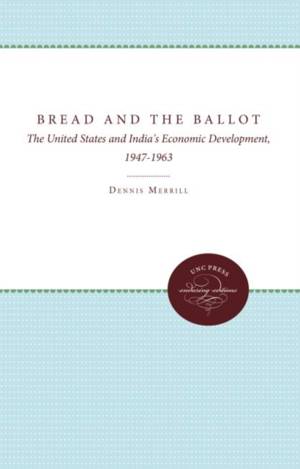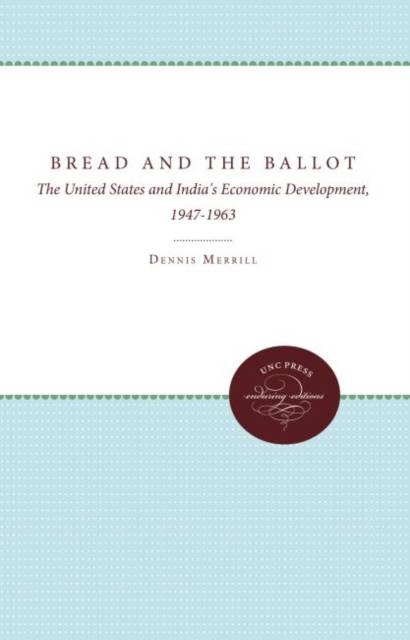
- Afhalen na 1 uur in een winkel met voorraad
- Gratis thuislevering in België vanaf € 30
- Ruim aanbod met 7 miljoen producten
- Afhalen na 1 uur in een winkel met voorraad
- Gratis thuislevering in België vanaf € 30
- Ruim aanbod met 7 miljoen producten
Omschrijving
Dennis Merrill examines the origins and implementation of U.S. economic assistance programs in India from independence in 1947 to the height of John F. Kennedy's "development decade" in 1963. As the Cold War spread to the Third World in the late 1940s and 1950s, American policymakers tried to use economic aid to draw neutral India into the Western camp. Citing the country as the "world's largest democracy," the Americans hoped to establish India as a showcase for American-sponsored development and a counterweight to the Communist model in the People's Republic of China.
By the early 1960s, India has become one of the Third World's leading recipients of American economic assistance. Yet, as Merrill demonstrates, India remained dedicated to a nonaligned status, and Prime Minister Jawaharlal Nehru's frequent criticism of U.S. foreign policy tried the patience of Cold War strategists. Even in the area of economic policy, the two nations differed on a wide variety of developmental issues. Thus, argues Merrill, the Indian case offers a keen vantage point from which to explores modern American foreign policy and the complexities of the foreign aid process.
Bread and the Ballot is one of the first studies of U.S. attitudes toward Third World development in the decades following World War II to be based largely on recently declassified government documents. Merrill's study draws on materials from the Harry S. Truman, Dwight D. Eisenhower, and John F. Kennedy presidential libraries, U.S. State Department records, and the papers of Chester Bowles, who served as ambassador to India under both Truman and Kennedy. In addition, Merrill's extensive research in Britain and Indian public records gives this work a multinational perspective.
Originally published in 1990.
A UNC Press Enduring Edition -- UNC Press Enduring Editions use the latest in digital technology to make available again books from our distinguished backlist that were previously out of print. These editions are published unaltered from the original, and are presented in affordable paperback formats, bringing readers both historical and cultural value.
Specificaties
Betrokkenen
- Auteur(s):
- Uitgeverij:
Inhoud
- Aantal bladzijden:
- 304
- Taal:
- Engels
- Reeks:
Eigenschappen
- Productcode (EAN):
- 9780807857441
- Verschijningsdatum:
- 1/05/2010
- Uitvoering:
- Paperback
- Formaat:
- Trade paperback (VS)
- Afmetingen:
- 152 mm x 229 mm
- Gewicht:
- 449 g

Alleen bij Standaard Boekhandel
Beoordelingen
We publiceren alleen reviews die voldoen aan de voorwaarden voor reviews. Bekijk onze voorwaarden voor reviews.









